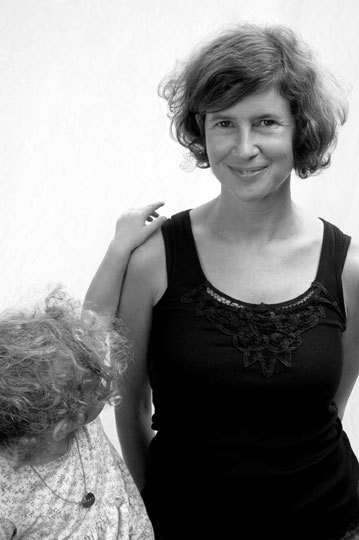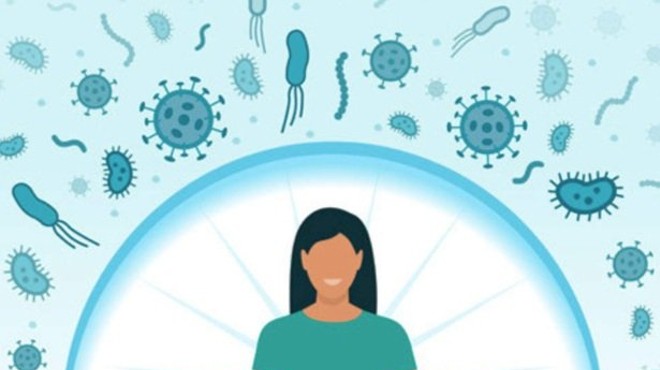Yet, though it is like this, simply, flowers fall amid our longing,
and weeds spring up amid our antipathy.
— Dogen Zenji, Genjokoan
Feeding my fabulously finicky toddler has been a challenge, to say the least. The more she resists my efforts, the more frustrated I become. Our positions quickly get fixed into the classic power struggle: me the desperate mother, filled with a craving to feed, and she the indifferent Noodles, please! toddler. Buddhism is actually filled with teachings on mindful eating, but there isn’t much on the nitty-gritty of raising a mindful eater, so I decided to ask some folks for help.
I found three great people to talk to:
Dr. Harvey Karp: Dr. Karp is the best-selling author of The Happiest Baby/Toddler on the Block (Bantam Books, 2004). He is a professor of pediatrics at UCLA School of Medicine and travels extensively talking (lovingly) about kids.
Nina Planck: Nina wrote the critically acclaimed Real Food (Bloomsbury USA, 2007), and her most recent book is Real Food for Mother and Baby (Bloomsbury, 2009). Both are gems.
Konrad Ryushin Marchaj Osho: Before Ryushin moved into Mount Tremper’s Zen Mountain Monastery in 1991 to become a monastic/priest/teacher, he was a pediatrician and a psychiatrist.
I asked them all the same three questions, and this is what they had to say (in 1,000 words or less!):
What is the best way to raise a mindful eater—someone who appreciates food but is not obsessed with it?
DR. HARVEY KARP
Number one, every child is different. Food and drink are important triggers of our internal reward center or dopamine opiate center, as are friendship and touching. So for some kids eating is a huge part of the reward center and for other kids it just doesn’t mean that much to them. Number two, there’s some intrinsic sense of what the body needs, early on. That gets overridden later when kids get into this very finicky period, usually anywhere from 15 to 30 months. Kids get really rigid. They want things they can hold with their fingers, things that are white, which is why cheese and pizza and pasta and bread become real favorites at that point in time. And the third basic understanding is that there are battles you can win as a parent and battles that you can’t win. For example, candy. You don’t want to give her candy, you don’t give her candy. You can win that every single time. Eating broccoli is a different issue. If she really wants to, she’s going to win that one. But ultimately, if you can outwait them, they’re probably going to come around to your diet without you having to plead and beg and negotiate.
NINA PLANCK
By example. It’s the only answer you can give. Your toddler is psychic. And don’t talk about it. Just serve the food and eat.
I believe you could train your toddler to sit in his chair, never drop his spoon, and eat all his food, but you’d have to smack him every time he drops his spoon or leaves food on his plate, and then you’d have a terrified, tortured individual. You wouldn’t have a mindful eater. You’d have an abused eater and a totalitarian mother.
RYUSHIN OSHO
Frequently, we forget that much of early childhood eating is not about eating; it’s about being with the parent. Our basic learning about taking food in is extremely closely connected to how we’re being held, looked at, what the mother is doing, feels like, and then goes from there.
I remember it from my own upbringing, of what a meal felt like when we were sitting together—when I was three or four—and it was an occasion for the family to come together. But I remember that the meal wasn’t just about food; there was attention to it, but it was an opportunity to connect and to have people’s attention, directed to you, as a kid. I remember my grandfather playing with my sister—“The whale is coming in…”—and it was play. The other thing is that we were an extended Polish family, so the emotionality around food wasn’t just narrowed down to me and my mother, where I’m locked in and suddenly this becomes the currency of our struggle.
In order to get a picky eater to try new food is it okay to bribe kids—i.e., “If you eat your broccoli, you can have ice cream?”
DR. HARVEY KARP
Absolutely. I wouldn’t call it bribery. I think that’s a morally loaded word. Ultimately, you don’t want to always have to give ice cream to get what you want. But that is a bridge to get you in the right direction, and then you start decreasing the amount of ice cream you give, and you start replacing the food reward with other rewards. People get bent out of shape, like, “Don’t praise your child and don’t reward.” And it’s nonsense. You can’t not do it.
NINA PLANCK
I don’t think it’s fatal, but it seems sort of limited as a tactic because it requires that you always have a bribe handy the minute the child says no. [My son] tends not to get dessert if he hasn’t eaten. They’re related tactics, though he can always have fruit, even if he hasn’t finished his supper.
RYUSHIN OSHO
There is a kind of conditionality—in order the get this, you have to have that—there must be some sort of resentment that is being internalized within a person with respect to that, so I think I would be cautious, but at the same time, what the hell do I know? I can definitely understand why there are moments when this can become, literally, a life-or-death struggle between a parent and a child.
Should we serve picky eaters special foods at mealtimes?
DR. HARVEY KARP
It’s not wrong to indulge your children as long as when you have to set a limit, they know they have to respect your limit. We have to set limits, and the key is that when you do it, you’re really clear that you’re not to be messed with. So you could be indulgent about meals or not indulgent. You get to do what feels good to you. As a parent, you’re just trying to get through the day.
NINA PLANCK
There’s a long list of real foods. And we don’t have a separate shopping list for kids’ foods. They all come off the list of real foods, and then in deciding what’s for supper, I treat my son’s considerations with equal weight to mine and my husband’s.
RYUSHIN OSHO
I never experienced that, so it would be difficult for me to imagine what that would feel like. I would feel special—how frightening that would feel to me, to have food prepared just for me, outside of the circle of the family. That level of attention can crawl inside of your skin.
Tune in next month to see if I am able to actually put these wise words to good use.
Bethany Saltman lives with her family in Phoenicia. She has been a student of John Daido Loori, Roshi, Abbot of Zen Mountain Monastery, since 1998. You can read more of her work at www.bethanysaltman.com.












